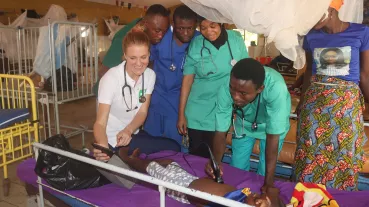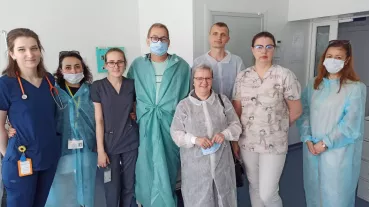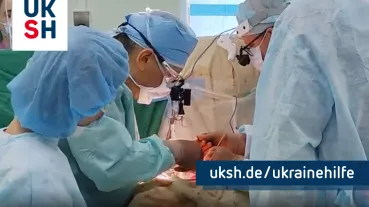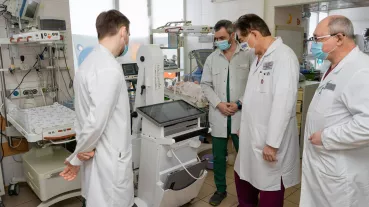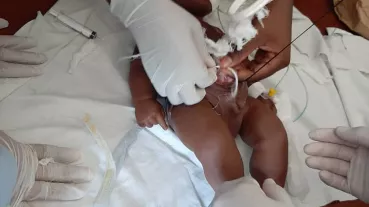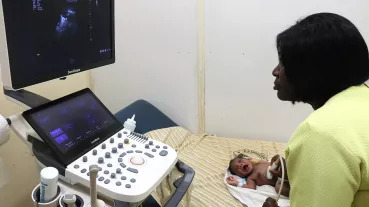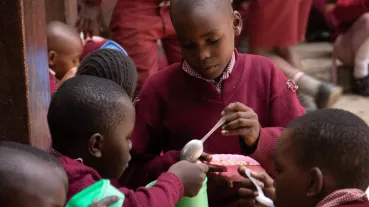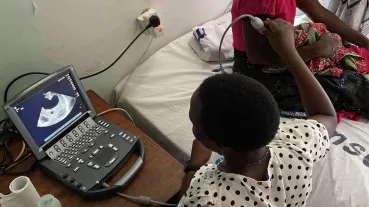Bienfait
Situation:
Due to poverty, many children in the rural areas of Rwanda do not have health insurance and no diagnosis of their medical condition. In addition, there is a lack of support such as wheelchairs or therapy options.
Objectives:
The project contributes to directly improving the health situation and well-being of the particularly disadvantaged group of children and adolescents with disabilities in the rural regions of Rwanda, thus reducing inequalities.
- Number of children with health insurance and diagnosis
- Number of children with access to medical aids
- Number of community health workers trained
- A mobile diagnostic team regularly travels to remote villages and provides care to children with disabilities and their parents in the 537 villages of Karongi District. They educate about how a disability develops and how to mitigate its effects. If there is no diagnosis yet, the diagnosis is the first step to accompany and support the family.
- The team sits down with the child's family to make a decision about therapy, treatment or further measures. This data collection is scientifically accompanied, recorded and mapped. Further counselling and aftercare is determined.
- If necessary, the provision of assistive devices and appropriate referral and training for the affected children and families is initiated.
- Concrete contact persons are the Community Health Workers, who are volunteers in almost every village and have been elected for this office by the community beforehand. They take responsibility for the children and adolescents in their care and also provide follow-up care and support during the times when there is no medical team on site. These local professionals should be regularly trained and educated to become more competent in diagnosis. They pass on this knowledge and their experience to their colleagues. This will help detect preventable diseases and disabilities earlier and improve child health in Rwanda in the long term.
Health services at the local level, especially where infrastructure is weak, are supported and health workers are strengthened. Capacity building of local forces will improve both the quality and accessibility of health services.
The mobile diagnostic team's visits to villages is an innovative approach that is very service-oriented and reaches people where they live. Due to their disabilities and the poor infrastructure in rural areas, they find it difficult to access such services. Treatment centres for people with disabilities are good and important, but simply not accessible for many people with disabilities living in rural areas. Therefore, it is important to provide them with the help in their immediate environment.
Here you can find further information.
